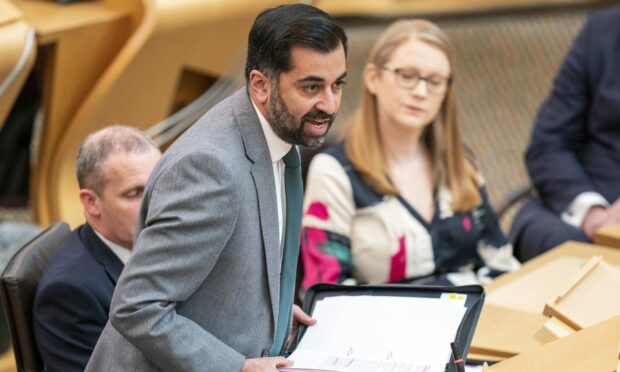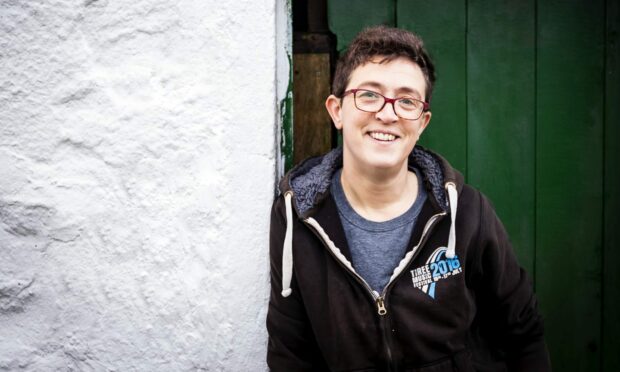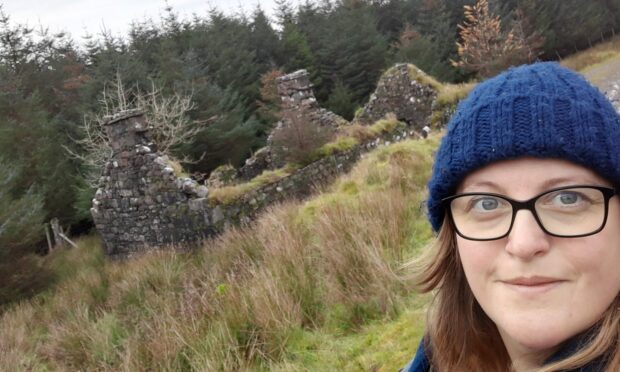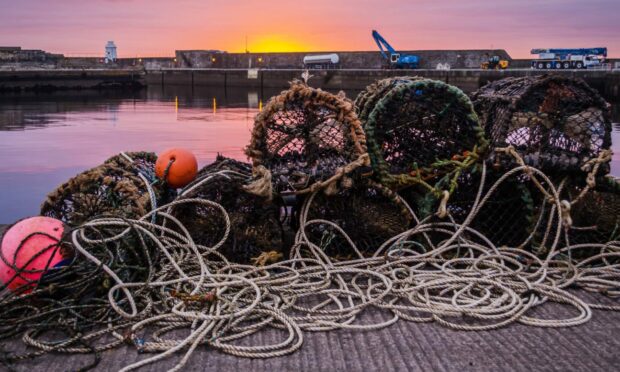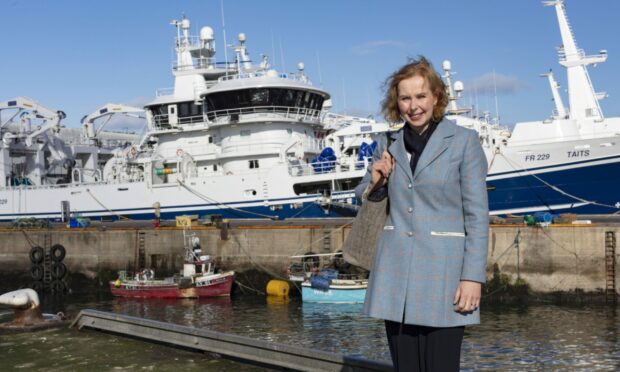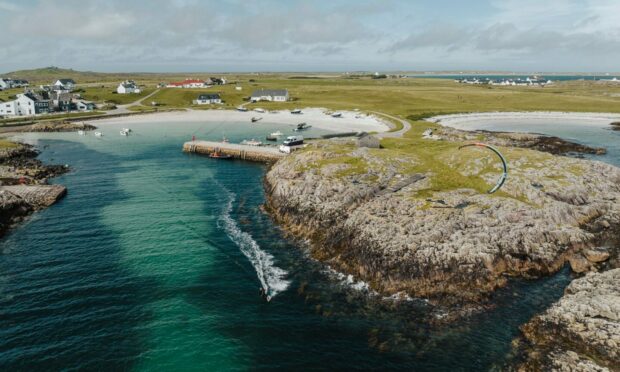
Fragile coastal and island communities hope to convince First Minister Humza Yousaf to scrap controversial bans on fishing in vast swathes of Scotland’s seas.
Known as Highly Protected Marine Areas, they could impose bans on aquaculture and restrictions on some leisure activities in at least 10% of the country’s waters.
As the backlash grows, environmental groups appear to have a big task ahead to reduce the “huge amount of fear and uncertainty” felt in some areas.
The outrage is keenly felt in the Western Isles but extends to coastal communities right across the Highlands, islands and along the North Sea coast.
Mr Yousaf has already indicated they won’t be “imposed” in places that do not want them, leading critics to ask why the policy is still being considered.
Those in favour say Scotland’s seas are not protected properly to maintain good environmental status.
They believe the zones would lead to greater biodiversity and abundance of marine species, including those which are targeted by commercial and recreational fishers.
This could widen the range and increase the amount of alternative fish which could be caught by fishing communities, it has been claimed.
HPMAs are a consequence of the power-sharing deal between the SNP and Greens, known as the Bute House Agreement.
Former SNP MSP Angus Macdonald, who lives in Lewis, quit the SNP after 35 years. He described the new highly regulated fishing zones as the “final straw”.
Asked about the policy at Holyrood, Mr Yousaf said: “This government will not steamroll, will not impose, upon any community a policy that they are vehemently opposed to.”
‘Fear and uncertainty’
Rhoda Meek, chair of Tiree Community Trust, is a crofter and business owner on the island where she has lived for the past 10 years.
Tiree’s fishing sector, which accounts for around 20 full-time jobs, is one that has bucked the island’s depopulation trend, she says.
Around one quarter of children on the island are from fishing families, raising concerns over the future viability of the island if their parents choose to move in search of work.
Ms Meek says the consultation into HPMAs has created a “huge amount of fear and uncertainty”.
“This consultation coming out as it has with such sweeping suggestions and so little nuance or dialogue initially with fishing communities has resulted in a lot of fear and a lot of anger as well”, she explains in an interview you can listen to in full on our politics podcast, The Stooshie.
“I think it has the potential to make the future of islands unviable. If you take the consultation at face value and the suggestions of what could be banned in Scottish inshore waters then you are looking at one of the three main pillars of island economies just being knocked from under it.”
Ms Meek says there are islanders who feel the government is “actively trying to ruin island communities” in the policies they put forward.
She does not think this is the case – but warns there is “ignorance” of life in rural and island areas, made worse the “further you get from the central belt”.
‘Huge impact’
Kirsten Gow lives in Jura and is an islands researcher interested in the creation of sustainable futures for Scotland’s inhabited islands.
She says the zones could have a “huge impact” on the fishing industry and associated industries, and contribute to depopulation.
Ms Gow says: “We’re not saying that we don’t want sustainable practice. Most people I know aren’t saying that the principle of protecting our seas is a bad thing – that would be a ridiculous thing for islanders to say.
“Because that’s what’s allowed us to live in these places. That’s what’s allowed my family to live here hundreds of years, because we live in harmony with the sea. So nobody is saying that we’re against the principle of protecting the seas.
“But why people are protesting is because they want policy that protects both the seas and our communities, but you need to work together with the communities for that.
“There’s a huge amount of local knowledge and wisdom here that is maybe under-represented and under-valued sometimes by people that make policy.”
Highly Protected Marine Areas
Mr Yousaf has been at pains to make clear no sites have been selected yet for the zones.
Speaking during First Minister’s Questions on Thursday, he said this will not begin until responses from a recent public consultation have been analysed.
The SNP leader has promised the policy will not be “steamrolled” upon any community strongly opposed to them.
But Conservative Highlands and Islands MSP Donald Cameron said “not one community in the Highlands and Islands wants these.”
On Wednesday, Scottish Green minister Lorna Slater refused to say if the plans are a “red line” in the power-sharing deal between the SNP and Greens.
Marine Protected Areas (MPAs) already cover 37% of Scottish waters.
HPMAs will provide high levels of protection to marine ecosystems by placing far stricter restrictions on what you can and cannot do within their boundaries.
Commercial and recreational fishing would be banned in the designated areas.
They would also place strict limits on infrastructure construction.
The Scottish Fisherman’s Federation has warned the network of zones will have a “catastrophic impact” on the industry.
Elspeth Macdonald, chief executive of the federation, believes the plans lack ecological justification and were being introduced for purely political reasons.
She says: “The underlying assumptions are that fishing is damaging to the environment and stocks are degraded. Neither is justifiable, and in fact the government’s own indicators show that sustainability of commercially fished stocks is on a continuing upwards trend.”
The Sustainable Inshore Fisheries Fund (SIFT) says it is “broadly in favour” of the proposals but raised concerns with the “less than optimal” consultation which should have engaged with the industry “much earlier”.
Charles Millar, the charity’s executive director, says: “Scotland’s current approach to all economic uses of our inshore, and to nature restoration, is piecemeal and incoherent.
“This delivers neither environmental nor economic benefits: instead we need proper marine spatial plans, areas set aside for low impact fishing, or for dredging and trawling, or renewables, or conservation.
“Within a plan of that sort, well-located highly protected marine areas can help replenish fish stocks alongside other marine biodiversity.”

Enjoy the convenience of having The Sunday Post delivered as a digital ePaper straight to your smartphone, tablet or computer.
Subscribe for only £5.49 a month and enjoy all the benefits of the printed paper as a digital replica.
Subscribe